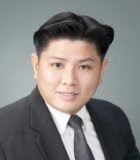Hamish MacDonald
Al Jazeera
05 May 07
The city-state of Singapore is Asia's second-richest country after Japan - a high-tech global hub for banking, transport and business.
Modern Singapore has never really had a problem with poverty, but globalisation and an aging population are changing that.
A growing number of Singaporeans are now struggling to make ends meet - forcing radical changes to social and fiscal policy in a country where welfare remains a
dirty word.
Tan Ching Hoo is 62 years old. He used to work as a waiter, but now he collects cardboard for a living.
For every kilogram, he earns the equivalent of 65 cents. "Whether I like or not, I have no choice," he says. "I have to earn money."
His son pays the rent of $50 a month for a one room apartment.
'Dirty word'
But Tan is not alone. Eight per cent of Singapore's population is said to live in poverty and increasing numbers are joining that new class of urban poor.
Sinapan Samydorai of the Think Centre, an independent political research group, says for years Singapore was built around a concept of affluence, and was simply not prepared for the idea of poverty.
"Welfare was a dirty word in Singapore, even now. They don't encourage welfare."
Globalisation created Singapore's economic miracle, reinforcing the self-styled image of the 'lion city'.
But it also brought cheaper migrant labour, and that has made it hard for an ageing population to compete.
While most countries have their disadvantaged, what makes Singapore different is that a country now known as one of the most affluent in Asia is developing what
is being described as an underclass.
Singapore's government has now acknowledged there is a problem and in this year's budget it introduced what it calls "bold" new welfare payments.
Sylvia Lim, a member of parliament for the opposition Workers Party, says this represents something of a sea change in Singapore's policy towards welfare.
"This is quite radical for Singapore," she says.
"We have always lived under this system where you have to earn every cent that you get basically and now the government recognises that there are some people who
just can't earn enough now."
'Marginalised'
Singapore's emerging underclass may be relatively small now, but its growth could threaten the political dynamic in what is effectively a one-party state.
Chua Hak Bin, a Singapore-based economist with Citigroup, says this is the first time the government has acknowledged the issue.
"There will be some social pressures, there will be a group that will be marginalised," he says.
"I guess what is important though is that it is being recognised and the government is trying to do something to help those people."
Back at his small one room flat Mr Tan has yet to sign up for any of the government's new assistance programs.
The paperwork he says is just too complicated.
Even in pragmatic Singapore old habits die hard, and welfare, both giving and receiving, might take some getting used to.
Singapore's wealth gap:
[Source]: UN, Singapore government
GDP $28,077 per person in 2006
Economy forecast to grow 7 per cent in 2007
Between 2000 and 2005:
- Monthly income of Singapore's poorest workers fell 4.3 per cent to $774 a month.
- Monthly income of Singapore's richest workers grew 2.8 per cent to nearly 11,000 dollars a month
Source:
http://singaporeelection.blogspot.com/2007/05/growing-underclass-in-lion-city.html
Regards,
Edmund Ng
CEO, President
www.Internet-Empire.com
Wednesday, May 09, 2007
blog comments powered by Disqus
Subscribe to:
Post Comments (Atom)
